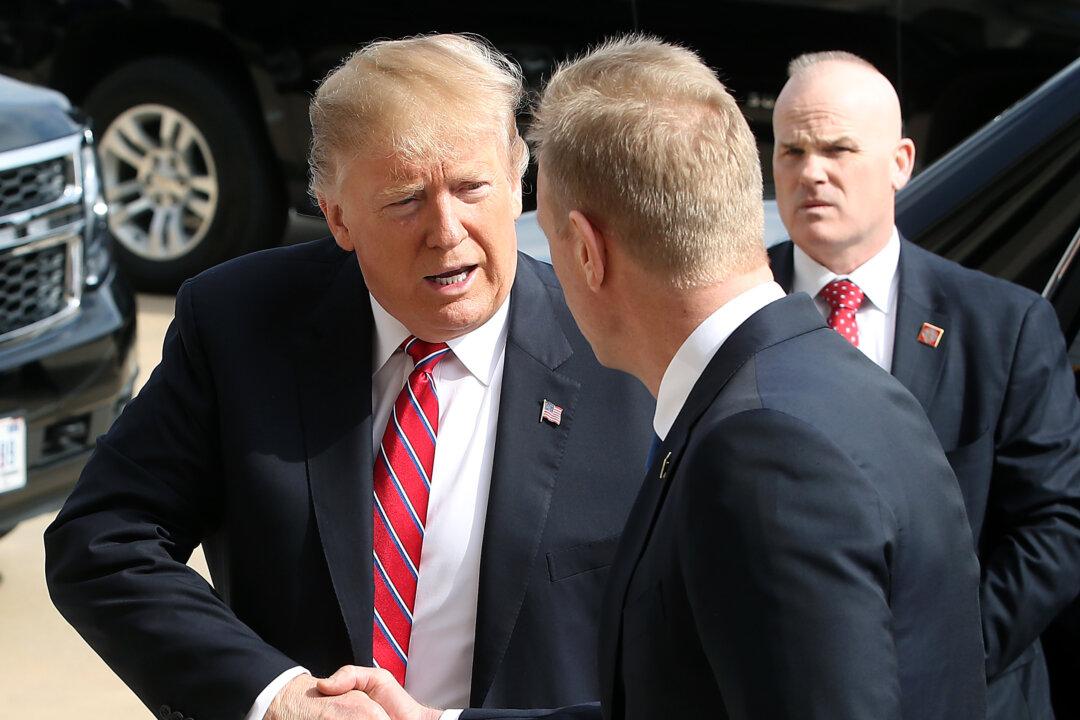President Donald Trump used the first veto of his presidency on March 15 to override a congressional resolution, which terminated his national emergency declaration over the crisis on the southwest border.
Trump made the announcement in the oval office flanked by law enforcement officials and mothers of people killed by illegal aliens.





